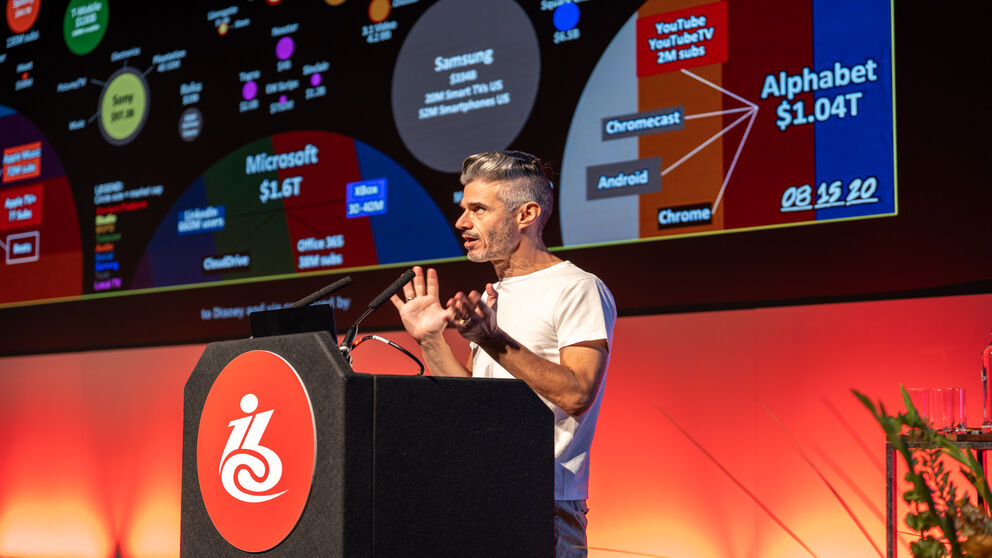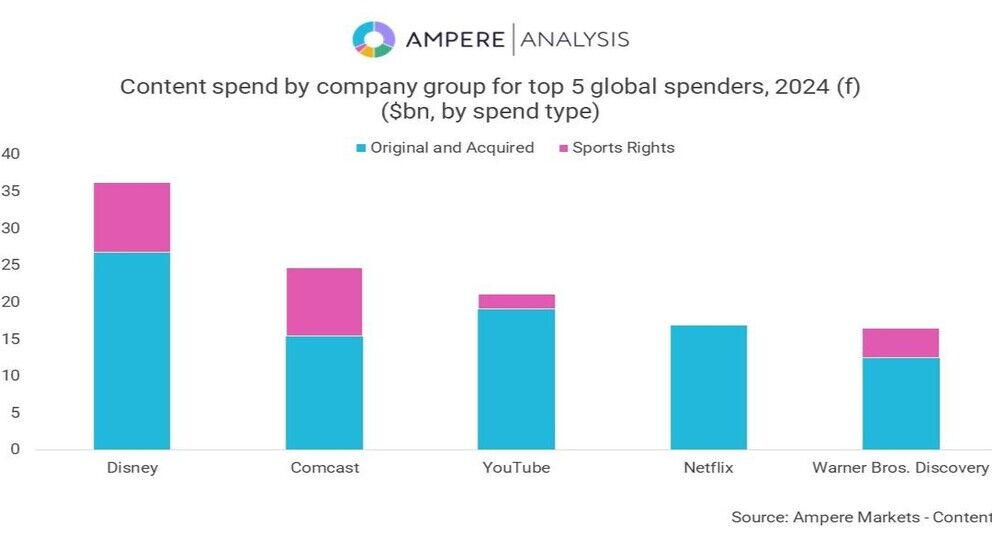Media universe cartographer Evan Shapiro has issued a stark warning to today’s big media players, arguing that they must adapt fast in order to survive.
Media businesses are sleepwalking into a new user-centric era which has already begun. But although the media’s Jurassic age is over and everything has changed forever, the dinosaurs are in denial, said Shapiro, speaking at an IBC2023 conference session, Plotting the Effects of Disruption.

Shapiro, who is known for his original analyses of the tech and entertainment ecosystem, recommended refreshing the top of companies - getting rid of CEOs which are chosen from a small band of executive elites and replacing them with a more diverse management focussed on user-centric business models.
One of the problems that the media has is that short-term thinking is baked into its culture, based around the next earnings call, said Shapiro. “Compare that with Amazon which went for a long time before it became profitable. “You need to be able to ignore the short term and hook your wagon to a big moonshot.”
He cited companies such as the New York Times, which has completely reinvented its business with the help of a total outside, as the way forward. He also singled out Amazon for praise.
“What I really love about Amazon is they aren’t afraid to fail. Fear of failure is one of the big issue holding back the industry. Companies need to look outside of the existing ecosystem to find new ways of thinking,” he said.
Shapiro criticised the industry’s dependence on streaming services, which he said performed well during lockdown where many consumers binged on media.
“But when lockdown was over and the media companies handed out bonuses like candy canes, subscribers have not continued to consume content in the same way.”
Churn is a growing problem for many, said Shapiro. “In the last year the symptoms have got so bad that they can no longer ignore it.”
According to Shapiro the reality is that media companies that are not built for this new user centric era will not survive.
Evan Shapiro plots new trends in the media ecosystem
This reinvention isn’t going to be simple, said Shapiro, who issued a hit list of the changes that media companies need to make in order to survive in the new user-centric age:
- Don’t think of different media such as video and gaming as silos. Consider them more as different channel spokes off your IP hub.
- Realise that the USA and Europe are not the centre of the media world, which is going to be dominated by faster growing markets such as Latin America, Asia and Africa.
- Bearhug your big tech collaborators in the new era but get the balance with big tech right and don’t lose control. Make sure you maintain your relationship with users.
But Shapiro maintained that he was optimistic that companies who seek change will survive and thrive. “It’s time for us all go back to school and re-learn everything about our business. If this seems like an enormous effort, it is!”
You are not signed in
Only registered users can comment on this article.

WBD mails definitive proxy statement to finalise Netflix merger
Warner Bros. Discovery (WBD) will hold a special meeting of shareholders to vote on the merger with Netflix on March 20, 2026. In the meantime, WBD has begun mailing the definitive proxy statement to shareholders for the meeting.

Sky's talks to acquire ITV slow down
Talks by Sky to acquire ITV’s broadcast channels and streaming platform have slowed in recent weeks, according to a report by Reuters.

Bytedance pledges to rein in Seedance AI tool
Chinese technology giant ByteDance has pledged to curb its controversial artificial intelligence (AI) video-making tool Seedance, following complaints from major studios and streamers.

Digital switch-off prospect nullifies Arqiva’s value
Arqiva’s main shareholder has admitted that its holding of the transmission company might be worth nothing.

Warner Bros Discovery mulls re-opening sales talks with Paramount
Warner Bros Discovery is considering reopening sale talks with Paramount Skydance Corp, according to a Bloomberg report.




